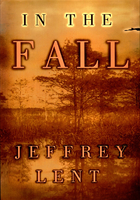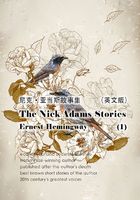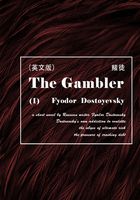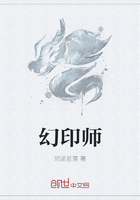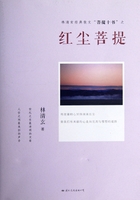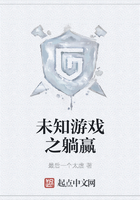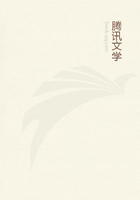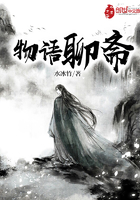Some of humanity's greatest achievements took place in the twentieth century, and some of its worst excesses. It was a century of improvement in quality of life for millions of people, yet also a century of decline in many parts of the globe.
When the century began, some of its future tyrants were already embarked upon their destructive careers. At the same time, science and medicine were taking enormous strides forward. The motor car was in its infancy, and within a decade, aircraft would take to the skies. As in previous centuries, the high value placed on human life by religion and custom was in almost constant conflict with the savageries of war. Patriotism and imperialism were at a high point. And expectations of better things to come were rising.
The clash of nations and their alliances, the strivings of Empires and their collapse, and the struggles of nationalities and national groups, were central to the century. No year passed without human beings being killed in war, or struggling to recover from the ravages of war. 'It is called the century of the common man,' wrote Winston Churchill, 'because in it the common man has suffered most.' The often tragic fate of the 'common man', and woman and child, runs like a dark thread through these pages. There are also golden threads among them—the courage and perseverance of innumerable individuals, and the assertion of the equal rights of all nations, and of the rights of the individual, against the frequently crushing burdens of State oppression and military tyranny.
There were many national and international efforts by which the human race sought to control its own destiny and regulate its conflicts. Treaties and agreements, promises and armistices, seemed in almost every year to be the pointers of hope for the future. The century began with imperialism in the ascendant, and yet already under daily threat. As Empires tried to overcome that threat, national movements devised means of subverting them. The First World War was fought predominantly by the European Empires, each of which had established during the second half of the nineteenth century commercial dominance and territorial control over much of the globe. The rivalries between the great industrialized and militarized nations were to pit their peoples against each other.
The Empires which dominated the world when the century began had all dissolved by the time it ended. The Soviet Union, successor to the Russian Empire of the Tsars, survived longest, into the final decade of the century. Other national groupings, such as Yugoslavia, came into being as the century moved forward, but also broke up. On 19 December 1996, The Times listed the diplomats who had attended a memorial service in London on the previous day. They included the Ambassadors of Macedonia, Croatia, Albania, Lithuania and Ukraine, and the Chargé d'Affaires of the Slovak Republic. None of these six countries had existed as an independent entity in 1900.
Revolutions and revolutionaries everywhere strove to change the old order, and in the process often did not respect the rights which even the worst of the old orders had established. Indeed, the secret police regimes of the old order were not necessarily any worse, and were often more benign, than those by which they were replaced in the hope of a better tomorrow. Everywhere mankind strove for that better tomorrow, while not always preserving what had been achieved for today. The 'common man', the ordinary citizen, the soldier, the prisoner and the refugee are seldom named in the history books, yet it remains the century in which their lives have been transformed the most, sometimes for the good, sometimes for the very much worse.
This history explores the way in which the twentieth century, the culmination of many centuries of political and social evolution, was not the inevitable progress towards perfection that so many fighters for truth had assumed it would be. The twentieth century began, and ended, with war being fought somewhere or other on the globe, with troops in mortal combat, and with death and injury reported daily in the newspapers.
Much of the century was dominated by the struggle between the rule of law and lawlessness; between the rights of the individual and the destruction of those rights. In 1937 President Roosevelt asked, of the people of the world: 'Surely the 90 per cent who want to live in peace under law and in accordance with moral standards that have received almost universal acceptance through the centuries, can and must find some way to make their will prevail.' Roosevelt added: 'It seems to be unfortunately true that the epidemic of world lawlessness is spreading.'
The scale of the loss of human life in wars, civil wars and natural disasters did not diminish after Roosevelt's warning, indeed it escalated. There were the daily death tolls of the Sino-Japanese War, the Italian-Abyssinian War, the Spanish Civil War, the Second World War in all its component parts, and then the daily death tolls of the post-war conflicts, including the civil war in China, the Korean War, and the French wars in Vietnam and Algeria. More secret, but no less terrible, were the killings perpetrated by totalitarian regimes: the fate of millions of defenceless Russians, Chinese, Jews, Cambodians and Rwandans killed in cold blood is an almost unimaginable horror of these years.
The motor car also made its contribution to the suffering of the human species, as, on the roads, each year saw slaughter that would be shocking, even unacceptable, if it occurred in war. In the twenty-eight years between 1933 and 1961 almost a million United States citizens were killed in road accidents. These statistics relate to individual human beings, each of whom has a name, family, a career cut short, a life unfulfilled. Road deaths have been a persistent aspect of life in the twentieth century since before the Second World War.
There have been many victors in the twentieth century, but even for those countries that were victorious, suffering and loss, and the memory of harsh times and bitter lessons, have never been far from the surface. The struggles that emerged after both the First and Second World Wars were the struggles to prevent future war, to create a mechanism and state of mind conducive to the peaceful settlement of disputes. But the struggles, whether of nationalism in its extreme forms, or between the Communist and non-Communist world, or between the colonial rulers and those whom they ruled, repeatedly lurched towards violence, and the threat of violence. Ethnic hatreds also pulsated through the decades; in 1935 the British historian H.A.L. Fisher commented, almost in despair: 'An insane racialism threatens to rupture the seamless garment of civilization.'
The most forceful threat of destruction, which also proved the most powerful deterrent to destruction—emerging from the Second World War, and created during the war as a means of victory—was atomic power. This was a threat that led to intense anguish within democratic societies, where the anti-nuclear debate brought moral and medical arguments to bear upon the strategic arguments. It was the development of the Hydrogen bomb that led seven Nobel Prize winners, among them Albert Einstein, to call in 1955 for the renunciation of nuclear weapons by all governments possessing nuclear weapons, and for those governments 'to find peaceful means for the settlement of all matters of disputes between them'. The Nobel laureates stressed that 'a war with H-bombs might possibly put an end to the human race'.
In the last three decades of the twentieth century, television images brought every element of the global struggle to the homes and sitting rooms of hundreds of millions of people. The Vietnam War was the first, the Gulf War one of the last. Famine and civil war also came almost simultaneously to the screens of people thousands of miles away from the suffering, thrust, as it were, into their living rooms.
Every historian has his own perspective, derived from personal experiences and interest over many years, in my case over thirty-eight years of research and writing. Some events are central to any presentation of a historical period, and only a rash writer would omit them. This is true of many episodes in this volume, such as man's first airborne flight, the Russian Revolution of 1917, Hitler's coming to power, the rule and demise of Stalin or Mao Tse-tung, the dropping of the atom bombs on Hiroshima and Nagasaki, the assassination of President Kennedy, the Vietnam War, or man's landing on the moon. Hundreds more episodes are part of this narrative because they illustrate some aspect of the unfolding years. Events that made an impact at any given time may subsequently have faded from the public mind, but I have tried, in view of their importance when they took place, to include them, and also to include the names of those—now largely forgotten—who once bestrode the pages of the newspapers or whose images filled the television screens for their brief period of achievement or notoriety. Recurring anniversaries also present the historian with new material uncovered as a result of the upsurge in public interest and the testimony of those who were alive at the time, providing a bridge between those who witnessed events and subsequent generations whose lives have been unconsciously influenced by them.
General history can be as sharply focused as detailed studies. Over many years I have tried to interweave the wider sweep of events with the stories and names of those who made their contribution often in small corners or without fanfare. 'Lest we forget', the cry of pain that lies behind so many memorials and memorial meetings, is a testimony to the desire of the human spirit not to turn away from the individual, not to overlook the stories of individual heroism, suffering, achievement and hope. During my work on the history of the twentieth century it is the part of the individual on which I have tried to focus: not only individual actions, but the struggle for the rights of the individual, for civil rights and human rights, in every land. By the end of the century those rights were better understood, and more widely respected, than in earlier decades, but not universally. Every decade since the century began saw a diminution of human rights somewhere on the globe, as well as their advancement elsewhere. Real progress is not a law of nature; setbacks as well as progress can be found in each year covered by these pages. Gradually, human beings see their lives and livelihoods enhanced, even in countries such as the Soviet Union—now itself a thing of the past—where they had long been at the margin of national policy or ideology; and gradually the achievements of the century, including those in technology and medical science, become more and more widely available; but despite that, the struggles for a better life with which the century began do not end as the century ends, and, although the nature of those struggles has often changed, the search for a better life—for human fulfilment—will certainly challenge, frustrate and inspire the twentieth-first century as well.
MARTIN GILBERT
Merton College
Oxford
15 February 2001



